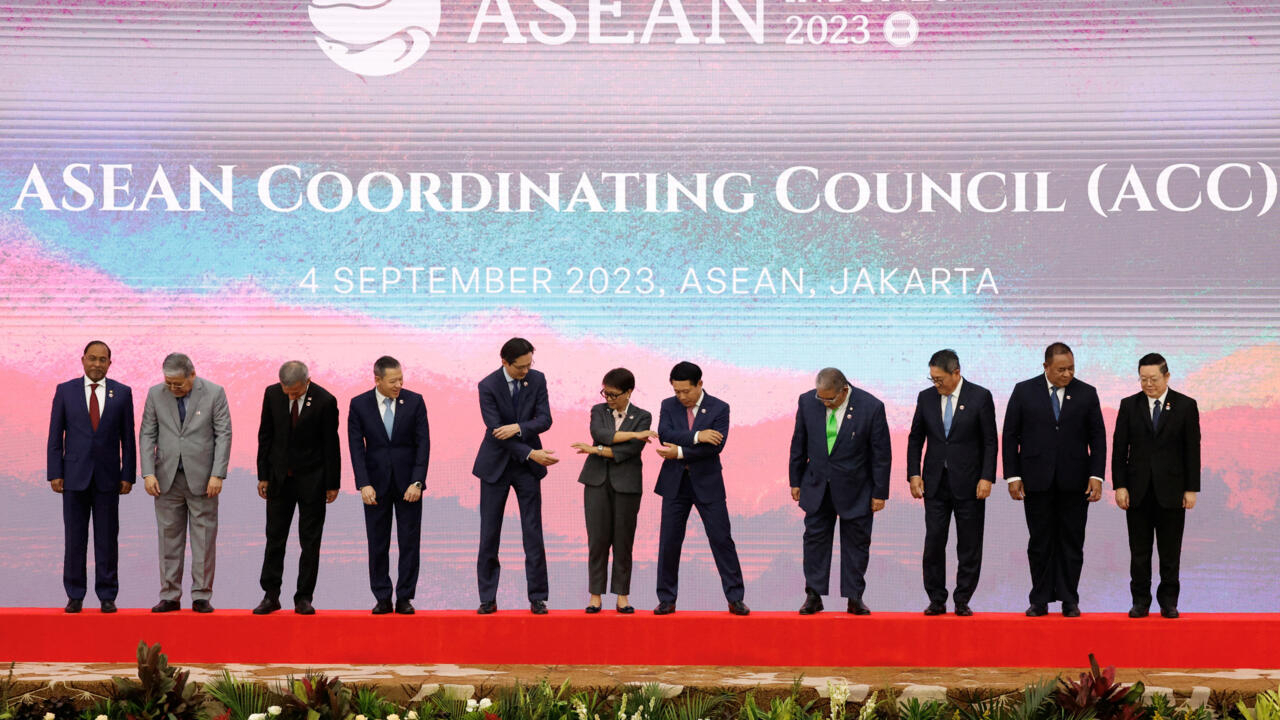In early March, Taylor Swift began the first of her six-night residency playing her critically acclaimed Eras Tour in Singapore. The city-state was one of only two countries in Asia hosting the popstar on the international leg of her tour, due to a deal struck by the Singaporean government and Swift regarding the Eras Tour. In early April, a group of economic and finance leaders from the Association Southeast Asian countries (ASEAN) met in Laos in order to discuss economic entanglement and developmental factors in southeast Asia. The theme of this meeting consisted of discussing the factors and aftermath of the global pandemic and various international conflicts which have arisen within the past couple of years—and a multi-million dollar business deal involving Taylor Swift and implicating a split amongst the ASEAN nations.
The southeast Asian nations which comprise ASEAN work via a system of multiple meetings in an annual fashion in order to continue to foster those economic and diplomatic relations they strive for. Twice a year, the ASEAN nations come together for the ASEAN Summit, where nations deliberate the strengths and weaknesses of policy issues in their respective nations and attempt to problem-solve them at a diplomatic level. The most recent ASEAN Summit was held in September of 2023 in Jakarta, Indonesia. Member states discussed a plethora of issues, from policies such as the Blue Economy Framework—which aims in strengthening the ocean-based economies of these various sea-lined nations with cleaner environmental policies and stronger business practices—to other international policies such as the United Nations Framework Convention on Climate Change.
Some of the most persistent issues ASEAN faces as a coalition are greatly influenced by the various regional problems ASEAN countries face. The Cambodian general elections of 2023 and the subsequent Senate election which occurred recently in February of 2024 has elected long-standing Prime Minister Hun Sen into power. ASEAN had flagged this concern and even conducted an Observation Mission during the 2023 elections to ensure polling and voting was conducted in a democratic fashion as Cambodia asserts it was, and thus corroborated Cambodia’s claim. Another critical regional concern for ASEAN lies within Myanmar, specifically the civil war raging in the country at the moment between the Burmese military and various resistance movements and coalitions. In 2021, the Burmese military staged a coup as the nation was about to recognize election results which won prominent civilian leader Daw Aung San Suu Kyi and her National League for Democracy 83% of seats available in Parliament. Ever since, the military and resistance movements to the military coup have been engaged in violent conflict, killing thousands and displacing millions. When the most recent ASEAN Summit occurred in September of 2023, the Myanmar Civil War was a sticking point in ASEAN’s reputation internationally, and has only deepened sentiments that the body is ineffective in handling regional unrest that could affect political stability globally. Regardless, even though the nature of democracy is very different throughout Southeast Asia, it is evident that the regional conflicts within various ASEAN nations are not hindering their work as a cohort.
This is especially true when looking at how the coalition is responding to international strife. As an entity, ASEAN has formalized its relations with China for decades, due to important aspects of the relationship which benefit both parties—China has been the largest trading partner to ASEAN nations since 2009. Economic cooperation and coordinated development has always been a high-priority area in the ASEAN-China partnership, as goods and services between Southeast Asia and China have a great impact on both economies. However, with the involvement of other countries such as the United States, China has warned ASEAN nations about the implications of varying involvement in economic agreements and strategic alliances, especially against the concept of treating China as a bloc.
In the economic sector, ASEAN nations have been looking for ways to revitalize their economies post-COVID, as Southeast Asia utilized tourism to support their economies and lost that structure during the pandemic. However, Singapore’s economy recently saw a spike due to Taylor Swift’s Eras Tour coming to the country and bringing tourists from various other Asian nations, bringing between $260 million to $375 million. This has caused some tension between ASEAN nations, as the Thai Prime Minister criticized Singapore’s business deal with Swift, which cost the nation somewhere between two to three million dollars. For this price, Swift exclusively played six nights in Singapore in comparison to its Southeast Asian nations, and thus exclusively brought her Eras Tour economic boost to only Singapore out of the various ASEAN nations. Economic development is a cornerstone of ASEAN’s policy agenda, and large pop culture events such as Taylor Swift’s Eras Tour could create new business opportunities for ASEAN nations, but also become a point of tension within the coalition.
ASEAN’s organizational issues of cooperation in various sectors could pose a critical issue when concerned with various issues of international security, one of the most prominent examples being relations with China. While the coalition is successful in cohesively handling regional problems, larger issues such as diplomacy with China could pose difficulties. Despite varying drastically in regional cohesion, ranging from authoritarian regimes to democratic arbiters of free trade, the international issues ASEAN faces have proven to require its cohesion and policy devising at the interregional level. Therefore, a call to present a unified front has never been more crucial in Southeast Asia.
Image via France 24






Comments are closed.